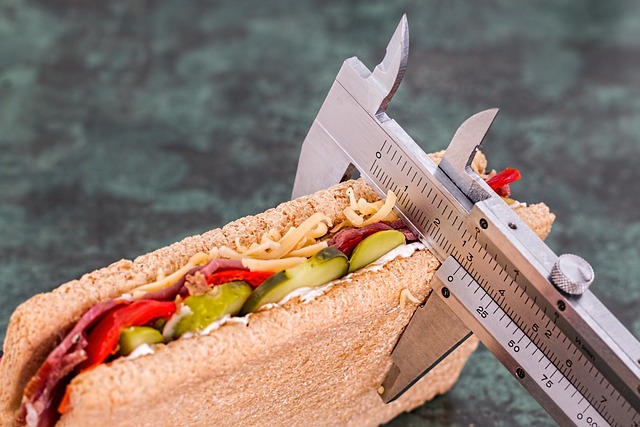Have you ever tried a keto diet to lose weight? It can be an effective way to shed those extra pounds and improve your overall health. But what happens after you’ve reached your goal weight? How do you sustain your weight loss long-term? In this article, we’ll delve into the topic of transitioning from a temporary diet to a sustainable lifestyle, so you can maintain your hard-earned progress.
When it comes to weight loss, it’s important to think beyond just a temporary fix. Sure, a strict keto diet may help you drop the pounds quickly, but can you sustain it for the long haul? It’s vital to adopt a lifestyle that supports your weight loss journey. This means making sustainable changes to your eating habits, incorporating regular exercise, and implementing healthy habits that fit into your daily life.
Transitioning from a keto diet to a sustainable lifestyle is all about finding balance. While a keto diet may have its benefits, it’s not necessarily sustainable or enjoyable for everyone in the long run. It’s important to find a way of eating that you can stick to and enjoy for the rest of your life. In the upcoming article, we’ll explore different strategies and tips to help you maintain your weight loss and live a healthy, balanced lifestyle. Stay tuned!

Understanding the Keto Diet
The Keto Diet, short for ketogenic diet, has gained popularity in recent years as a method for weight loss. It is a low-carb, high-fat diet that focuses on burning fat for fuel instead of carbohydrates. By drastically reducing carbohydrate intake and increasing fat consumption, the body enters a metabolic state called ketosis, where it becomes efficient at burning fat for energy.
What is the Keto Diet?
The Keto Diet involves consuming a high amount of healthy fats, a moderate amount of protein, and a very low amount of carbohydrates. This forces the body to break down stored fat into ketones, which are used as a source of energy. Foods that are typically consumed on the Keto Diet include avocados, nuts and seeds, fatty fish, olive oil, and coconut oil. Carbohydrate-rich foods such as grains, bread, pasta, and sugary treats are avoided.
How does the Keto Diet work?
The Keto Diet works by forcing the body into a state of ketosis. When carbohydrate intake is limited, the body’s glucose (sugar) stores become depleted. This prompts the liver to produce ketones from fat, which then become the primary source of fuel for the body. By consistently following the Keto Diet, individuals can achieve and maintain ketosis, leading to weight loss.
Benefits of the Keto Diet
The Keto Diet offers various benefits beyond weight loss. Many people report increased energy levels, reduced appetite, improved mental focus, and better blood sugar control. Additionally, the Keto Diet has shown promising results in managing conditions such as epilepsy and type 2 diabetes. It is important to note that individual results may vary, and consulting with a healthcare professional is recommended before starting any new diet or lifestyle change.
Transitioning to a Sustainable Lifestyle
While the Keto Diet can be effective for short-term weight loss, it is essential to transition to a sustainable lifestyle to achieve long-term success. Sustainable weight loss involves making gradual changes that can be maintained over time. Here are some key considerations:
Importance of transitioning
Transitioning from the Keto Diet to a sustainable lifestyle is crucial to avoid rebound weight gain. Many people find it challenging to maintain strict dietary restrictions indefinitely. By gradually reintroducing carbohydrates and finding a balance that works for you, you can create a sustainable eating plan that promotes overall health and weight maintenance.
Gradual changes for long-term success
Instead of abruptly ending the Keto Diet, consider slowly incorporating healthy carbohydrates back into your meals. This can include foods like whole grains, fruits, and vegetables. By gradually increasing your carbohydrate intake and monitoring how your body responds, you can find the right balance that helps you maintain your desired weight.
Finding alternative dietary options
If you enjoyed the benefits of the Keto Diet, you may want to explore similar eating plans that focus on whole, unprocessed foods and limit refined carbohydrates. Examples include the Mediterranean Diet, low-glycemic index (GI) diet, or a balanced macronutrient approach. These approaches provide flexibility and are more sustainable for long-term weight management.

Incorporating Exercise into Your Routine
While dietary changes play a significant role in weight loss, incorporating regular exercise is essential for maintaining weight and overall health. Here’s why exercise matters:
Benefits of exercise for weight maintenance
Regular exercise helps increase lean muscle mass, which can boost your metabolism and burn more calories throughout the day. It also improves cardiovascular health, strengthens bones, and enhances overall physical and mental well-being. Combining a healthy diet with regular exercise increases the chances of sustaining long-term weight loss.
Choosing the right exercise plan
When selecting an exercise plan, it’s important to choose activities that you enjoy and can stick with in the long run. This could be anything from walking and jogging to swimming, cycling, or joining fitness classes. Consider your fitness level, preferences, and any physical limitations when choosing an exercise routine.
Creating a fitness routine
To incorporate exercise into your daily routine, aim for at least 150 minutes of moderate-intensity aerobic activity or 75 minutes of vigorous-intensity aerobic activity per week. Additionally, include strength training exercises two or more days per week to build and maintain muscle mass. Consistency is key, so set aside dedicated time for exercise and make it a non-negotiable part of your routine.
Tracking Progress and Setting Goals
Tracking your progress and setting realistic goals are essential for staying motivated and measuring your success. Here’s how to do it effectively:
Importance of tracking weight, measurements, and progress
Tracking your weight, measurements, and progress allows you to monitor your journey and make adjustments as needed. It provides tangible evidence of your hard work and allows you to celebrate milestones along the way. Whether through a journal, mobile apps, or using a fitness tracker, finding a tracking method that works for you is crucial.
Setting realistic and achievable goals
Setting realistic and achievable goals is vital for maintaining motivation. Instead of solely focusing on the number on the scale, consider setting goals related to fitness, strength, or overall well-being. For example, aim to run a certain distance, perform a specific exercise, or simply feel more energized. These non-scale goals can provide a sense of accomplishment and motivation throughout your journey.
Adjusting goals as necessary
As you progress on your weight loss journey, it’s important to reassess and adjust your goals periodically. What seemed challenging initially may become more manageable over time. Conversely, if you find yourself reaching your goals easily, consider setting new, more ambitious targets to continue challenging yourself and avoid complacency.

Building a Support System
Building a support system is crucial for long-term weight loss success. Having people who understand and encourage your journey can make a significant difference. Here’s why a support system matters:
Importance of a support system for long-term success
A support system provides accountability, motivation, and guidance. Surrounding yourself with individuals who share similar goals or have successfully achieved weight loss can inspire and empower you to stay on track. Support can come from various sources, such as friends, family, or online communities dedicated to weight loss and healthy living.
Seeking support from friends, family, or online communities
Share your weight loss goals and progress with trusted friends and family members who can offer encouragement and support. Additionally, consider joining online communities or forums where you can connect with individuals who have similar goals. These platforms provide a safe space to share experiences, ask questions, and access valuable resources.
Joining weight loss support groups
Weight loss support groups, such as Weight Watchers or local community programs, can provide structured guidance, professional advice, and a sense of community. These groups often offer weekly meetings, accountability measures, and education on nutrition and lifestyle factors. Joining a support group can enhance your weight loss journey and help you stay committed to your goals.
Mindset and Behavior Modification
Adopting a positive mindset and focusing on behavior modification are key factors in sustaining weight loss long-term. Here’s how to cultivate a positive mindset:
Adopting a positive mindset for sustainable weight loss
Believing in yourself and adopting a positive mindset is crucial for long-term success. Instead of viewing weight loss as a temporary fix, embrace it as a lifelong journey towards better health. Be kind to yourself, appreciate your progress, and celebrate small victories along the way. Cultivating a positive mindset will help you stay motivated, even during challenging times.
Practicing self-compassion and resilience
Weight loss journeys can be filled with setbacks and obstacles. It’s important to practice self-compassion and forgive yourself when things don’t go as planned. Accept that progress is not always linear and use setbacks as opportunities to learn and grow. Building resilience will help you bounce back from setbacks and stay committed to your goals.
Identifying and addressing emotional triggers
Many people struggle with emotional eating or using food as a coping mechanism. Identifying and addressing emotional triggers can help break the cycle of emotional eating. Find alternative ways to cope with stress, such as engaging in hobbies, practicing mindfulness, or seeking support from a therapist or counselor. Understanding the underlying emotions behind your eating habits is essential for long-term behavior change.
Meal Planning and Healthy Eating Habits
Incorporating meal planning and developing healthy eating habits is crucial for sustaining weight loss long-term. Here’s why it matters:
Importance of meal planning
Meal planning helps you stay organized, save time, and make healthier food choices. By preparing meals in advance, you are less likely to rely on convenience foods or make impulsive choices. Plan your meals and snacks for the week, make a shopping list, and ensure your pantry is stocked with nutritious options. Having a plan in place reduces the chances of making unhealthy food choices when hunger strikes.
Developing healthy eating habits
Focus on developing healthy eating habits that are enjoyable and sustainable. This includes incorporating a variety of fruits, vegetables, whole grains, lean proteins, and healthy fats into your meals. Experiment with different cooking methods and flavors to make your healthy meals more enticing. Find nutritious substitutes for your favorite indulgent foods to satisfy cravings without derailing your progress.
Making smart food choices
Educate yourself about portion sizes, reading food labels, and making mindful food choices. Be aware of hidden sugars, added fats, and processed ingredients in packaged foods. Opt for whole, unprocessed foods as often as possible and prioritize quality over quantity. Building a foundation of smart food choices will support your long-term weight loss efforts.
Managing Cravings and Temptations
Managing cravings and temptations is an essential part of sustaining weight loss. Here’s how to handle them effectively:
Understanding cravings and temptations
Cravings are natural and often triggered by external cues, stress, or emotions. Understanding that cravings are not a reflection of weakness but rather a normal part of human physiology is key. Cravings can be managed by identifying triggers, distracting yourself with activities, or choosing healthier alternatives.
Strategies for overcoming cravings
When cravings strike, try swapping out unhealthy options for healthier alternatives. For example, if you’re craving something sweet, reach for a piece of fruit or a small portion of dark chocolate instead of sugary treats. Additionally, practicing mindful eating, staying hydrated, and ensuring you’re adequately nourished can help reduce cravings. Delaying gratification by distracting yourself or waiting for the craving to pass is also an effective strategy.
Finding healthier alternatives
There are countless healthier alternatives available for indulgent foods that can satisfy cravings without derailing your progress. For example, opt for baked sweet potato fries instead of deep-fried french fries or enjoy homemade popcorn instead of processed chips. Experiment with healthier versions of your favorite dishes and snacks to find alternatives that you genuinely enjoy.
Celebrating Non-Scale Victories
In addition to focusing on the number on the scale, it’s important to recognize and celebrate non-scale victories along your weight loss journey. Here’s why they matter:
Recognizing progress beyond the scale
Non-scale victories encompass all the positive changes you experience outside of weight loss. This could include increased energy levels, improved sleep quality, lowered blood pressure, or fitting into clothes you couldn’t previously wear. By acknowledging and celebrating these victories, you reinforce positive behavioral changes and provide motivation to keep going.
Setting non-scale goals
In addition to your weight loss goals, set non-scale goals that align with your overall well-being. This could be running a 5K, improving flexibility, or reducing stress levels. Non-scale goals provide a sense of purpose and enable you to see progress in other areas of your life.
Rewarding yourself for achievements
Rewarding yourself for achieving goals, both scale and non-scale, can boost motivation and reinforce positive habits. However, opt for rewards that align with your healthy lifestyle rather than food-based rewards. For example, treat yourself to a spa day, buy new workout clothes, or plan a weekend getaway. By rewarding yourself, you create positive associations with your weight loss journey and increase the likelihood of continued success.
Conclusion
Embracing a sustainable lifestyle is essential for long-term weight loss success. Transitioning from the Keto Diet to a sustainable eating plan, incorporating regular exercise, tracking progress, building a support system, and adopting a positive mindset all contribute to sustained weight loss. By developing healthy eating habits, managing cravings, and celebrating non-scale victories, you can create a balanced lifestyle that promotes overall health and well-being. Remember to find joy in the journey and stay motivated by focusing on your long-term goals.



